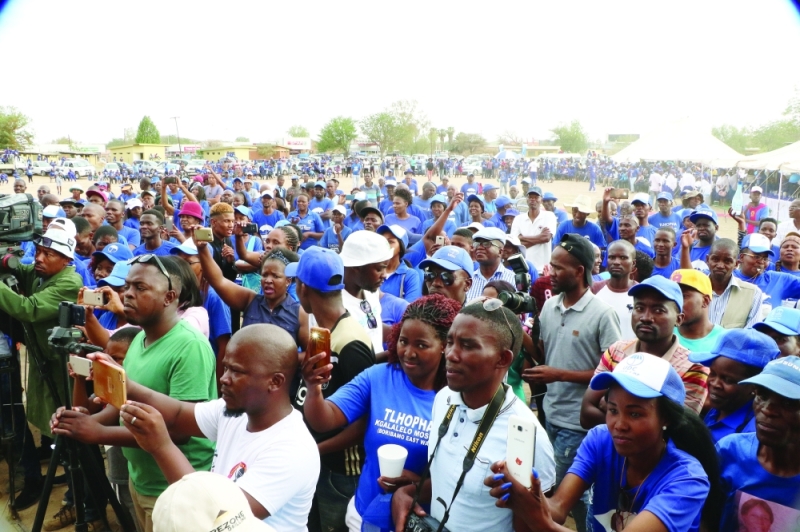UDC warned against modification of constitution
Chakalisa Dube | Monday November 28, 2022 06:00


There are reports that the UDC is in the process of introducing a revised constitution. Reports indicate that under the new constitution, the position of VP will be scrapped off. The new constitution, according to reports, will also give the UDC president the powers to choose a VP of his choice. There are also indications that in the new constitution the Botswana Patriotic Front (BPF) will be allocated the position of secretary. In the main, it is reported that the altered constitution will not cater for a UDC congress. Some critics assume in their favour that if it is indeed true that the UDC intends to revise its constitution and enact some of the clauses (thought to be less democratic), the move will be an indication that there is deterioration of democracy in the coalition.
Secondly, it is assumed that if the amendments are accepted, they will solidify the position of those who argue that there is no democracy in the UDC, particularly the Botswana Congress Party (BCP). This week political analyst Adam Mfundisi emphasised that a constitution is a fundamental law of any organisation including political parties. He pointed out that for political parties, the constitutions provide for power relations within the organisation. “It must promote and consolidate intra-party and/or inner democracy. However, if allegations that the UDC intends to revise its constitution to include some clauses that highlight that democracy in the coalition is waning, the (UDC) leadership will be undermining democratic principles and values that must promote good governance including ethics, accountability and transparency,” he said.
He expressed hope that allegations that the coalition intends to revise its constitution are not true. Mfundisi warned that if the reports turn out to be true, the UDC will face serious challenges in the country’s politics. He said: “It would seem (if the constitution is altered and the anticipated clauses are included) that the objective of the Botswana National Front (BNF) and its political leadership will be to weaken other political formations and cement its dominance through the UDC constitutional architecture.” Mfundisi explained that with the BCP sidelined and covertly removed from the UDC, the BNF and its leadership look untouchable and are domineering within the coalition. He averred that if the alleged UDC constitution sees the light of the day, it would mean that Duma Boko (UDC president) will be empowered to choose the VP of the UDC not the coalition. To him, this would mean that democracy within the UDC will remain a myth rather than a reality. ‘Democratic deficits in the UDC will further diminish trust and confidence by the voting population, which would lead to more voter apathy. If dictatorship is allowed to dominate UDC politics, it will also cascade through the coalition and become legitimised with serious political ramifications. Democracy will become compromised and the masses' faith in opposition politics will diminish with time.”
This week, the UDC spokesperson Moeti Mohwasa strongly denied reports that the UDC is at an advanced stage of revising its constitution. He also shot down speculation on several controversial clauses that the UDC reportedly wants to introduce in its constitution. “The UDC National Executive Committee (NEC) has assigned three streams to look into the constitution, policies and constituencies. The streams are still to submit their reports to the NEC for deliberations,” said Mohwasa. He did not rule out the possibility of the UDC totally scrapping its congress once the constitution has been fully revised. The UDC has been widely condemned for not going to a congress, which is catered in its current constitution. “The UDC has asked those who keep on pushing this line (calling for a congress) to suggest a formula that will ensure that post any electoral congress, the outcome does not leave out smaller parties out of the NEC. Our coalition is based on equality hence emphasis on equal representation at the NEC. An elective congress in the way that you and the critics suggest has a potential of reversing the very premise under which we coalesce, that we do things together and aggregate our interests. It is possible to have one party taking all the positions in the NEC and thereby denying representation of views of other political parties in the NEC.”
Mohwasa elucidated that in that scenario it will be difficult to call the UDC a coalition. “Chanting democracy is attractive and sounds politically correct. Democracy always exists in a particular context and is not infinite. These calls for democratisation of UDC lack genuineness, are opportunistic and made by people who are interested in their own dominance. The calls lack in-depth analysis and are pushed by populists.”
